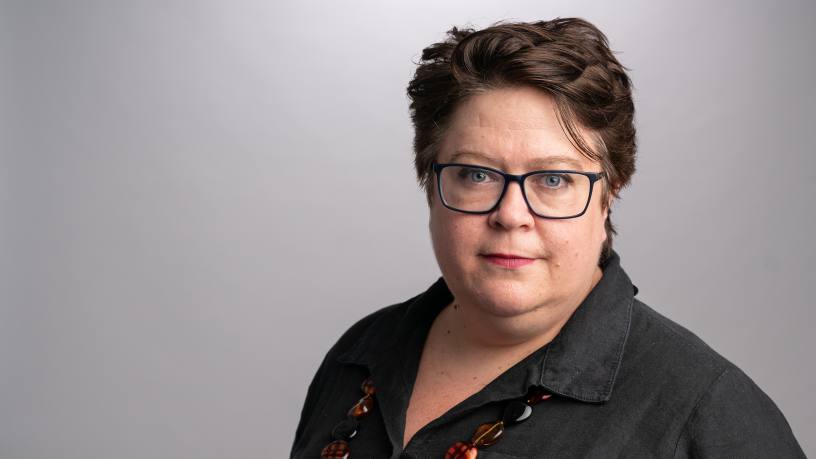“I’m trying to show you the easy way, not the hard way,” I said to my son, repeating a line my father said to me when I was a child. He promptly responded with “Mum, most people learn the hard way. That’s how people learn.”
Despite being left speechless, momentarily, I realised he was right and some of the best and most enduring lessons I had learned throughout my life had been learned ‘the hard way’.
Last week, Elon Musk informed the remaining employees of the social media platform formally known as Twitter that, by the end of 2024, X (as it is now known) would become “the centre of people’s financial world”. This was said during an all hands call last Thursday and reported by The Verge.
Not much more was said about this WeChat-style everything, everywhere financial app-repurposing of X, outside of it seeming to be centred on the US market. However, Mr Musk did say: “When I say payments, I actually mean someone’s entire financial life. If it involves money, it’ll be on our platform. Money or securities or whatever. So, it’s not just like ‘send $20 to my friend’. I’m talking about, like, you won’t need a bank account.” (Emphasis mine.)
Let’s not get into conflating payments with “someone’s entire financial life” just now. But I was all set to delve into the complexities, the sheer bloody mindedness needed to build a universal bank or non-bank bank, or platform that does everything a bank does, but isn’t actually a bank, in little over a year. After all, one of my favourite interviews is speaking to people who have started to build a bank. I always ask them why? Why did they take ‘the hard road’ when building a fintech company?
(Answers have ranged from the inane: ‘because software is eating the world, banks are no different’ (huh?) to the audacity of confidence with: ‘I just knew I could build a better bank’.)
Instead, I started looking at my relationship with Twitter and where I stand now. I’m using the name Twitter deliberately, because, honestly, I do not have a relationship with X — let alone have any desire to have Elon Musk be in control of my ‘money, securities or whatever’.
I have been on Twitter since 2009. It was the social media platform on which I felt the most at home and the one where I learned my hardest lessons.
For the most part, Twitter was all about work — 80% to 90% fintech. I kept my personal politics off the platform, mostly because I didn’t feel it fit with what I used Twitter for (and there are a lot of people in the banking industry who don’t share my politics).
I was one of the earliest participants in ‘fintech Twitter’ — a community of people who were passionate about payments innovation, complaining about regulatory vagueness or just looking for recommendations for a great bar in whatever city Sibos decided to land in each year.
I’ve met friends on Twitter, close personal friends who I’ve had to my house. I’ve met people who on first meeting exclaim ‘I follow you on Twitter, religiously!’. I feel like I used Twitter for what it was initially intended — to be a large global cocktail party, where you could find your tribe and build a community.
It wasn’t all informative threads and comprehensive lists, however.
I had been told by a former employer to ‘stop tweeting the news’ and save it for the website. An interesting turn of events, given that I had been told to stop ‘putting news on the website and save it for the magazine’ at a different employer four years prior.
Early on, an influential ‘thought leader’ tried to antagonise me and I took the bait — hook, line and sinker. I was given an invaluable piece of advice, from an unlikely source: when someone’s sole purpose is to get a reaction out of you, don’t give it to them. I have kept my distance from this person ever since.
I’ve muted, unfollowed and eventually blocked people, and seen my mental health improve, dramatically.
I try only to respond, react, and even disagree with people who know me — who I follow and who follow me back. No one needs a complete ‘know-it-all stranger’ butting in on their thread, even though that thread is posted on a public forum. I learned the hard way to just let people be wrong on the internet.
I’ve felt the warmth of a community, who circled the Twitter wagons (and almost caused my mobile to blow up with the weight of DMs) when I was attacked and denigrated by a cowardly marketing executive at one of those ‘bank, but it isn’t a bank’ fintech companies. I relearned the very hard lesson most women who express opinions on a public forum learn — a certain type of weak man really hates when they do that.
When I started thinking about this post, I took a long look at my relationship with X now. Despite hitting, at one time, 22,000 followers, I never had a blue tick, and I don’t have one now. My previous use of Tweet Deck is gone, as that functionality is now for premium subscribers only. But, more crucially, my fintech community is gone.
Not completely gone. My last proper ‘tweet’ that wasn’t a repost or a link to a podcast or a bylined article was re-tweeting two fintech friends who were talking about the various holiday flavours of a McDonald’s hot pie.
Today, my feed, despite being set to ‘followers’ rather than ‘for you’ is filled with horror and fear. When the wider world, outside of fintech-Twitter, is filled with such horror and fear, I feel it is my duty as a human to seek out the most accurate and intelligent reporting from reputable and trustworthy news sources. X is not the place I feel is most likely to deliver on that.
Looking at X now is like going back to your childhood home, long after your parents sold up and are sitting in a condo by the beach getting ready to go to dinner at Applebee’s at 4:30pm. But instead of a blue 10-speed leaning against the front porch and a teenage girl staring out the upstairs window, sitting at a desk her parents bought at a yard sale for $20, the lawn is overgrown with weeds, shouts and screams from the house can be heard on the street, while a lonely dog howls into the abyss in vain hope that someone will hear it and unchain it from the tree to which it’s been tied.
In the past, I’ve often taken a dim view of people who left Twitter in a public way. “How privileged of you,” I thought. The rest of us need to keep slogging away, the hard way, making what we put out into the world public so we can keep getting asked to speak, paid for work, and hired for jobs.
But today, I don’t feel like I’m leaving Twitter — Twitter left me, left all of us, a while ago. This week, the app is exiting my phone and leaving my desktop.
I’ll leave the account open, much like that howling dog, in the misguided hope that someone, somewhere will show it some love, and food and water. But for now, with Twitter, Liz doesn’t live there anymore.
You can connect with Liz on LinkedIn, or follow her on Bluesky @lizlum.bsky.social.
Register to sign up to Digital journeys, our new weekly newsletter, as well as the latest analysis and features from The Banker.






